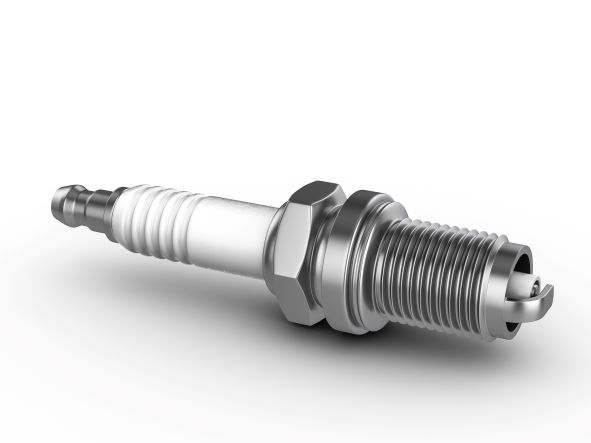The vehicle ignition system is a set of electrical components whose purpose is to do everything possible to generate the spark in the combustion chambers. As a rule, the spark generation process starts with the alternator, which supplies low-voltage voltage to the coil, and the car spark plugs finish the process. These are the parts that produce the spark from the voltage up to 35,000 volts applied from the high-voltage coil. The power of the spark determines whether or not the combustible mixture will flash. Therefore, the first thing to do if the engine does not start is to check the condition of the spark plugs and whether they work at all.
The Bosch spark plug has a wrench size of 16 and is equipped with a specially designed alloy of center and ground electrodes and is available with 14 mm threads.
BOSCH spark plugs – have a unique nickel – yttrium-alloyed center electrode, making the plug as reliable and corrosion-proof as possible. Oxide layer created by the yttrium several times increases resistance to wear and temperature. The alloying of the center electrode increases resistance to electrical erosion, which greatly increases the service life of spark plugs. The sharpened shape of the side electrode ensures complete combustion of the mixture and stability of the ignition process.
Causes and diagnosis of spark plug failure
Most of the problems with the plugs are due to poor fuel quality, which contains harmful additives.
Diagnose the engine on the state of the auto plugs, it is possible only if you drove on the candles 300 or more kilometers, only after that you can make conclusions.
Over time, due to temperature fluctuations, from fouling, from oil burning and from poor-quality fuel, the work of the spark plugs can deteriorate. As a result, the electrode will not produce the spark correctly, which will result in inefficient fuel combustion and affect engine performance.
Recommended spark plug replacement intervals can be found in the vehicle’s owner’s manual. But, it is worth noting that Bosch recommends doing a spark plug check every year and, if necessary, changing them to improve engine performance. For proper operation and to ensure accurate spark plug adjustment, some important rules for installing a new spark plug must be followed:
- Before removing the old spark plug, remove any dirt or buildup from the spark plug sump;
- carefully unscrew the spark plugs with a special wrench;
- pull out the spark plug and remove dirt from the spark plug well;
- put a new spark plug in place of the old one;
- use a torque wrench to tighten properly.
If the spark plugs are not installed correctly, it can have a bad effect on engine performance. It will also affect fuel consumption and starting efficiency, carbon emissions, and more. In the most deplorable cases, it eventually leads to the failure of various components of the ignition system. Therefore, carry out the replacement correctly, if you are not confident in your abilities – contact specialized car service stations. Keep your car running reliably and improve ignition performance with Bosch spark plugs.







































